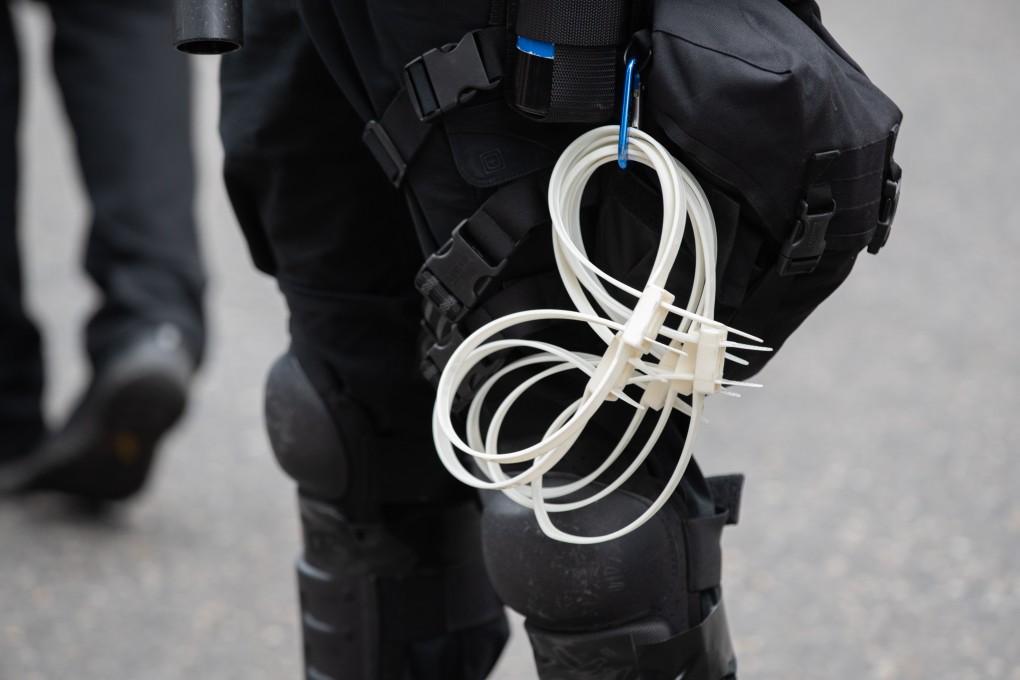Hong Kong protests: provision deeming zip ties ‘fit for unlawful purposes’ can be interpreted broadly, prosecutor argues in top court
- People can be caught for carrying pen to forge signatures, senior prosecutor argues
- Justice department asks top judges to uphold first jail sentence of defendant over possession of plastic fasteners at 2019 protest

A legal provision that categorises plastic zip ties as “instruments fit for unlawful purposes” can be interpreted so broadly that people can be caught for carrying a pen to forge signatures, a senior prosecutor has argued before Hong Kong’s top court.
The justice department was asking the top judges to uphold the first jail sentence and conviction of a defendant over possession of the plastic fasteners at a 2019 protest.
Property agent Chan Chun-kit received 5½ months behind bars for carrying 48 zip ties near the scene of clashes in Causeway Bay in November 2019.
During the hearing at the Court of Final Appeal on Friday, prosecutors submitted that the charge of possessing an offensive weapon – which covers instruments fit for unlawful purposes – could be considered a legal tool that encompassed every ordinary item “of a violating nature against person, property or place”.

A lower appeal court had upheld Chan’s conviction by allowing a broad interpretation of the charge so as to cover different, and even innovative, instruments used in a crime. The top court was asked to review such an interpretation.